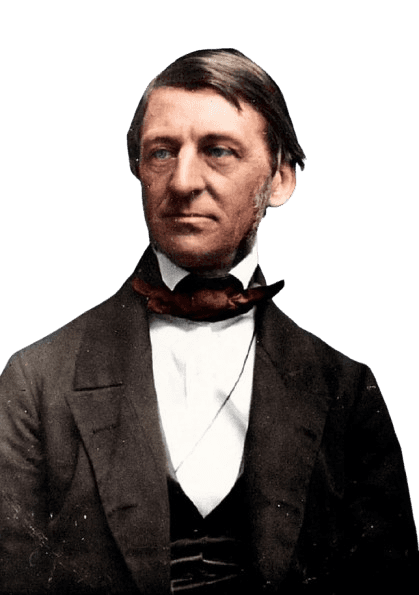Life and achievements
Early life
Ralph Waldo Emerson, the main subject of this paper, was born into a family with a strong religious and cultural background. His father, William Emerson, was a Unitarian minister, while his mother, Ruth Haskins, was a spiritual woman who cared for her family. Emerson's early education was somewhat influenced by his father's interests and by his aunt, Mary Moody Emerson, who took care of him after his father's death when Emerson was eight years old.
Emerson enrolled at Harvard College at fourteen, and one can see the early signs of his curiosity. His college years were filled with reading different subjects since he had to work to support himself through college. He ranked mid-list in his class, and for a short period, he taught after joining the Harvard Divinity School.
Emerson was made a Unitarian minister in 1829 but served briefly as a minister. His philosophical interests and questions and his disillusion with the church's doctrines, especially concerning the Lord's Supper, led to his withdrawal from the ministry in 1832. This decision can be considered the starting point of his Transcendentalism. This movement aimed to go beyond the conventional religion and focus on the spiritual self and its relation to the world.
Legacy
Emerson's impact is immense and long-lasting; he has left his mark on virtually every American philosophy and writing sphere. His philosophy of individualism and self-reliance is still relevant and is seen as part of American culture. Some of his works include Self-Reliance and The Over-Soul; even today, people are motivated to listen to their inner selves.
Emerson's involvement in the Transcendentalist movement played an important part in forming a new way of thinking that focused on the transcendental and the self rather than the materialistic and the conformist. This movement laid a foundation for the future of American literary and philosophical evolution and affected such authors as Henry David Thoreau, Walt Whitman, and other American thinkers.
He also supported social causes, such as the abolition of slavery, and was an active participant in the anti-slavery movement. His works and speeches on the ethical issues of slavery played a role in developing the abolitionist movement in the United States. His advocacy for women's rights and other social problems also showed his concern in the fight for justice and fairness.
Emerson's influence does not end with his literary productions; he delivered lectures and spoke in public, thus becoming one of the most influential thinkers of his generation. His works are read in literature and philosophy classes across the globe, and the author's impact can be seen in contemporary society with issues of individualism, nature, and social justice.
Milestone moments
May 18, 1836
Publication of "Nature"
Ralph Waldo Emerson, the father of Transcendentalism, wrote his first important work, "Nature."
This essay presented the concept that people can attain the divine through nature without the intervention of religious organizations.
"Nature" opposed the existing religious and philosophical systems and ideas, calling for the individual experience of the natural environment.
The appearance of "Nature" is the starting point of Emerson's impact on American philosophy, which focused on the connection between the individual and nature.
Aug 31, 1837
The American Scholar Address
Emerson gave the "The American Scholar" speech at Harvard's Phi Beta Kappa Society, which Oliver Wendell Holmes Sr. called America's 'Declaration of Independence of thought.'
The speech called for American scholars to free themselves from European dominance and establish their own academic personalities.
" The American Scholar" pointed to individualism and the necessity of intellectual and artistic freedom in America.
This address proved Emerson to be one of the most critical public thinkers of his time and stimulated a whole generation of American writers and philosophers.
Jul 15, 1838
Harvard Divinity School Address
He gave the well-known Harvard Divinity School Address, which was rather provocative. It dismissed the official dogmas of Christianity and focused on individuals' spirituality.
This speech created a controversy between Emerson and the Harvard Divinity School, and Emerson was not allowed to speak at Harvard for the next 29 years.
This address was crucial to the development of Transcendentalism because it called for a more immediate relationship with the divine.
Emerson's focus on the individual in spirituality rather than religion paved the way for future discussions in America's religious and philosophical spheres.
May 19, 1844
Publication of Essays: Second Series.
Emerson published "Essays: Second Series," a compilation of some of his most famous works, including "The Poet" and "Experience."
This collection reinforced Emerson's status as one of the most influential American philosophers and essay writers.
The essays were about identity, imagination, and life, thus extending the Transcendentalist philosophy.
"Essays: Second Series" played a vital role in developing American literature and philosophy and remains relevant today.
